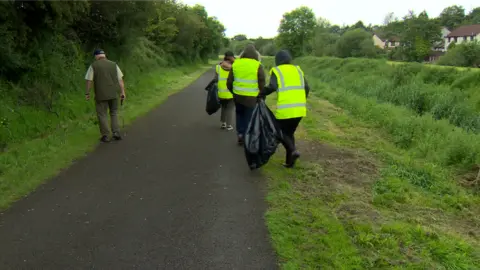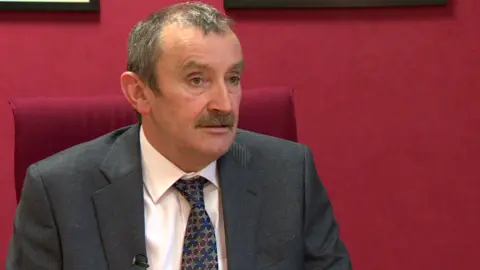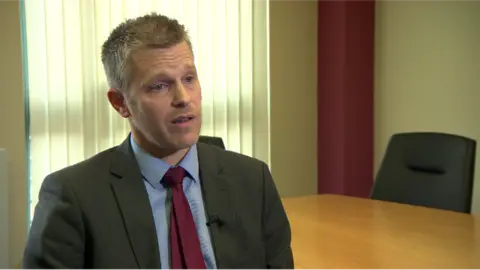Prison to pilot scheme: The rehabilitation project lowering reoffending
 BBC
BBCMore than 400 people whose crimes would normally attract a jail term of up to a year have instead served their sentences outside prison.
The scheme, known as an enhanced combination order, has been running in three court districts since 2015.
The rehabilitation order has led to a 20% reduction in the number of short-term jail sentences in those areas.
The order, which lasts between 12 months to three years, involves unpaid work in the community.
It also involves intensive probation, restorative intervention, psychological assessment and treatment.
James was given the option of avoiding prison by participating in the programme after he admitted to a public order offence while drunk and high on drugs.
 Getty Images
Getty ImagesJames, which is not his real name due to concerns for his safety if he is identified, said the programme forced him to address his offending behaviour.
"I got to write a letter of apology to the police, and I got to hand it in and apologise, person to person, and we got to shake hands and just say: 'I'm sorry for that act of stupidness.'
"I think if I got sent to prison I would have had an aspect of what prison life was like. You see people going in and out of prison all the time so I think it would have been, 'oh right, I know what prison is like now' and probably go on to reoffend.
"But this order really helped me understand that drink ain't the answer, drugs ain't the answer and I'm so glad I never got sent to prison."
The order has been successfully completed by 404 offenders in three courts areas since 2015 - Armagh and south Down, Ards and the north west.

District Judge Eamonn King, along with other members of the judiciary, would like to see it extended across Northern Ireland but that could depend on an executive being in place at Stormont.
"If it's an economic argument, the cost of keeping someone in jail is a number of times the cost of trying to keep someone in the community and rehabilitated within the community," he said.
"They are part of the community and if we give them the support to overcome their problems, then we're giving them back their dignity."

The Probation Board for NI said one evaluation of the scheme found there would be a saving of up to £8.3m per year to the public purse if the orders were rolled out throughout Northern Ireland.
"That is not an insignificant amount of money, it requires resourcing but, nevertheless, we believe there will be fewer victims and communities will be safer," said Stephen Hamilton, assistant director of the Probation Board.
Paul Millar from Barnardo's said the charity has worked with 76 people who have been sentenced to an enhanced combination order providing support and training to the offenders and their families.
"It can be around actually increasing parents' knowledge of parenting," he said.
"So increasing their parenting skills, looking at the impact of offending, their behaviour on family and family life because we know from research that for children who have a parent who offends there is a higher risk of them actually being involved in the criminal justice system," he said.
The Department of Justice said it was working to enable access to the orders as a sentencing option across Northern Ireland following full evaluation of the initial pilot.
